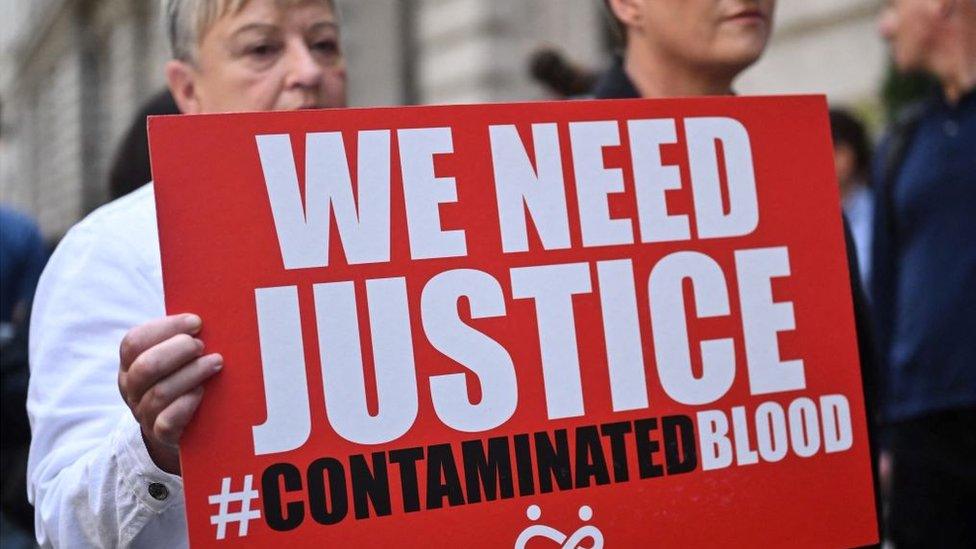'No victory for those affected by blood scandal'
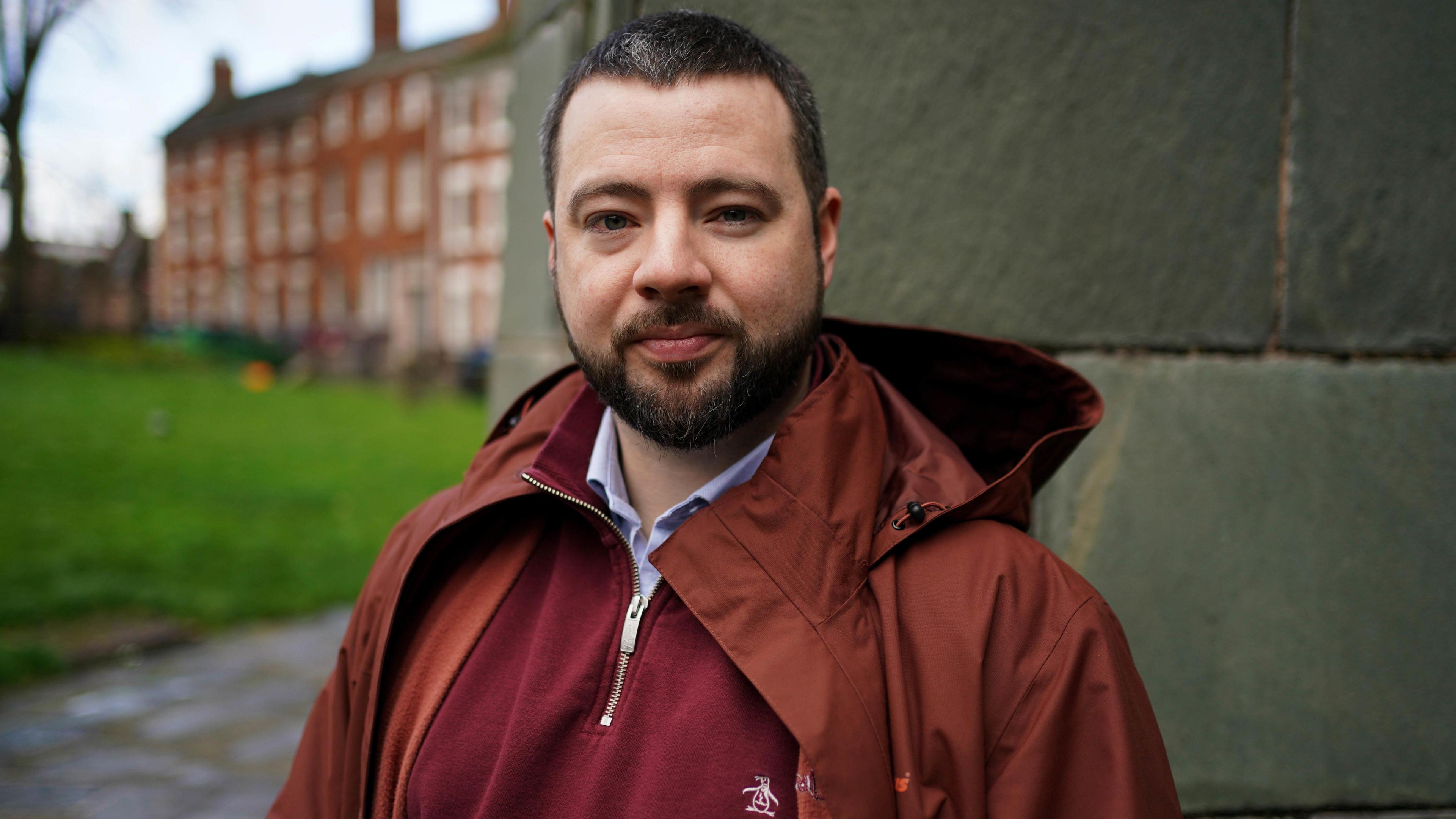
Jason Evans set up the Factor 8 campaign group in 2016
- Published
A campaigner has said there would be “no victory” for people affected by the infected blood scandal as officials prepare to publish the inquiry’s report.
Jason Evans, from Coventry, was four years old when his dad Jonathan died after he was infected with HIV and Hepatitis C at the Oxford Haemophilia Centre.
Mr Evans, now 34 and father to a 13-month-old girl, said the scandal had “blanketed” his entire life. He first went to a meeting with his dad to meet an MP about the issue when he was aged one.
The inquiry into the scandal, which saw thousands of patients treated with contaminated blood, is expected to publish its report on 20 May.
Mr Evans said he launched the Factor 8 campaign group in 2016 because he “couldn’t let it go”.
He said there was “no life” before the scandal, as his first memories of his dad were of him dying from Aids.
He then witnessed his mum “crumble to pieces” and was regularly called “the Aids boy” at school.
"It certainly altered the trajectory of my life and what I otherwise may or may not have done with my life,” he said.

Mr Evans' dad Jonathan died from Aids after he was infected with contaminated blood
Mr Evans' dad was born with haemophilia and was given the Factor VIII blood product during the 1970s and 1980s.
Since his death in 1993, Mr Evans decided to track down his dad’s biological family.
He found his uncle also died after he was infected with Hepatitis C and HIV from the same product.
Mr Evans questioned what it would mean when the inquiry issued the final report, adding that it would not bring back his dad.
He said: "There is no victory in this, there is no glory, there is no day where we say ‘wasn’t this campaign of great success’."
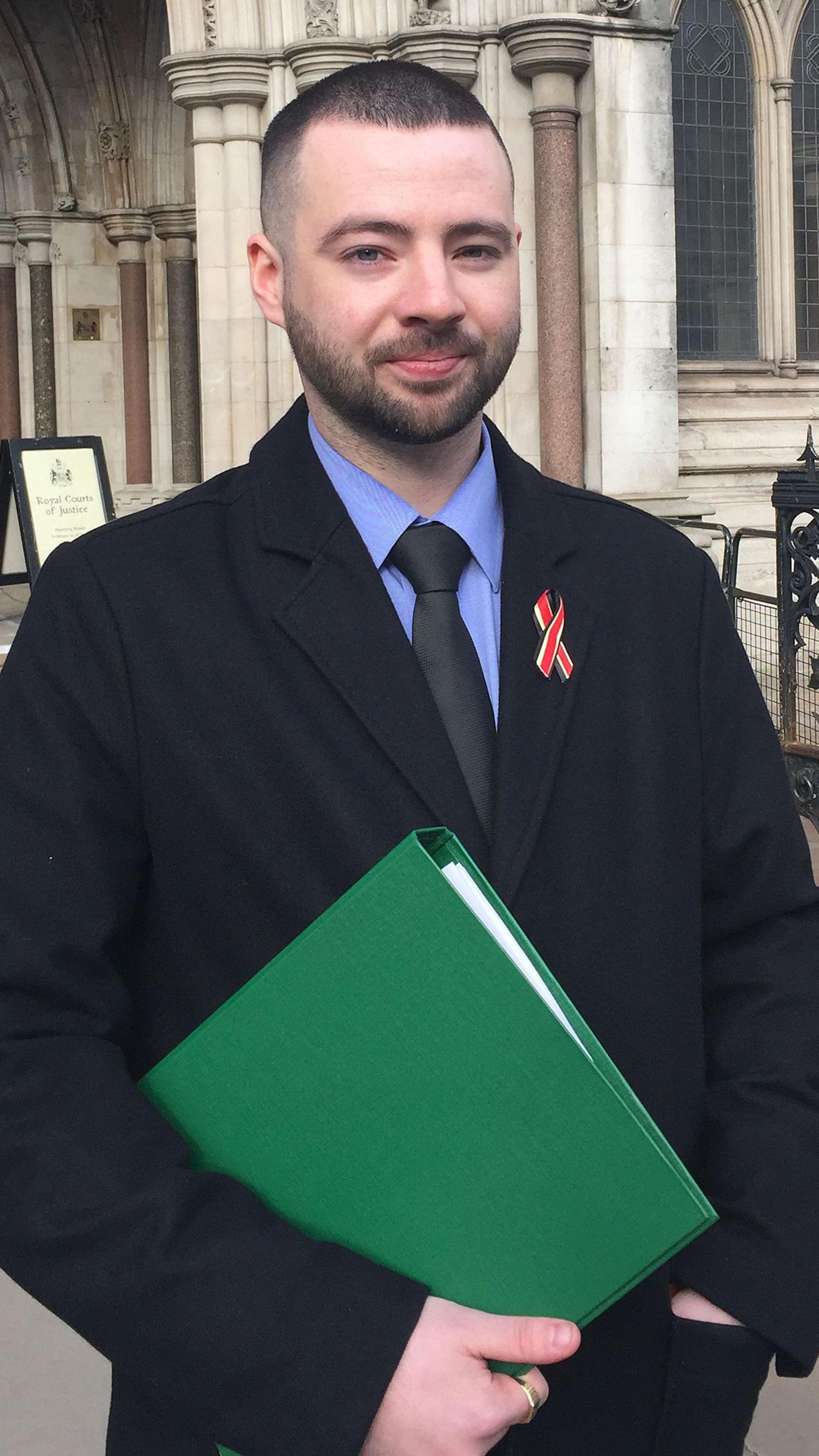
Mr Evans said the scandal has "blanketed" his entire life
The inquiry, chaired by Sir Brian Langstaff, was set up to examine:
Why people were given infected blood products
The impact on their families
How the authorities responded
The nature of any support provided following infection
Questions of consent
Whether there was a cover-up
Following the report’s publication, it will then be down to the government, which previously gave interim payments of £100,000 to about 4,000 victims, to act on its recommendations.
Follow BBC West Midlands on Facebook, external, X, external, and Instagram, external. Send your story ideas to: newsonline.westmidlands@bbc.co.uk, external
Related topics
Related internet links
- Published3 February 2023
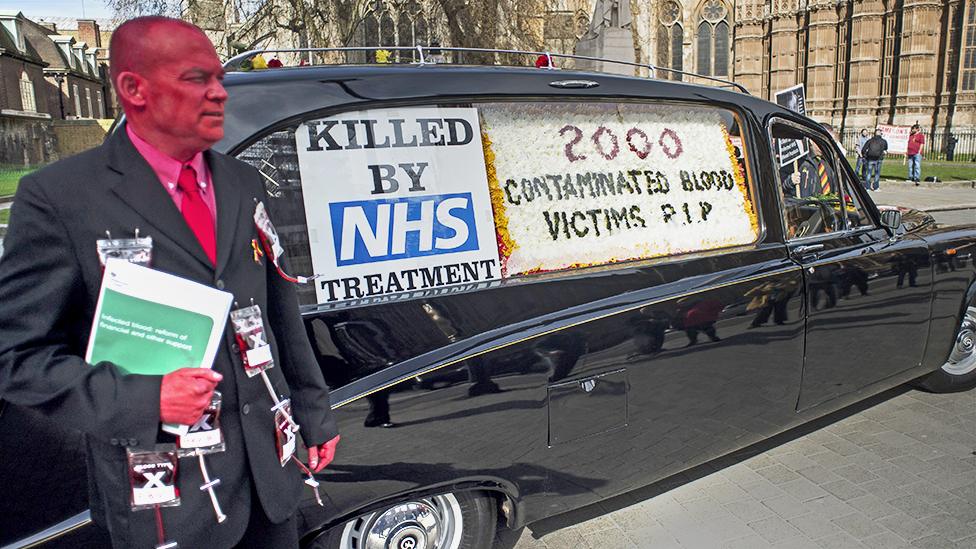
- Published24 July 2023
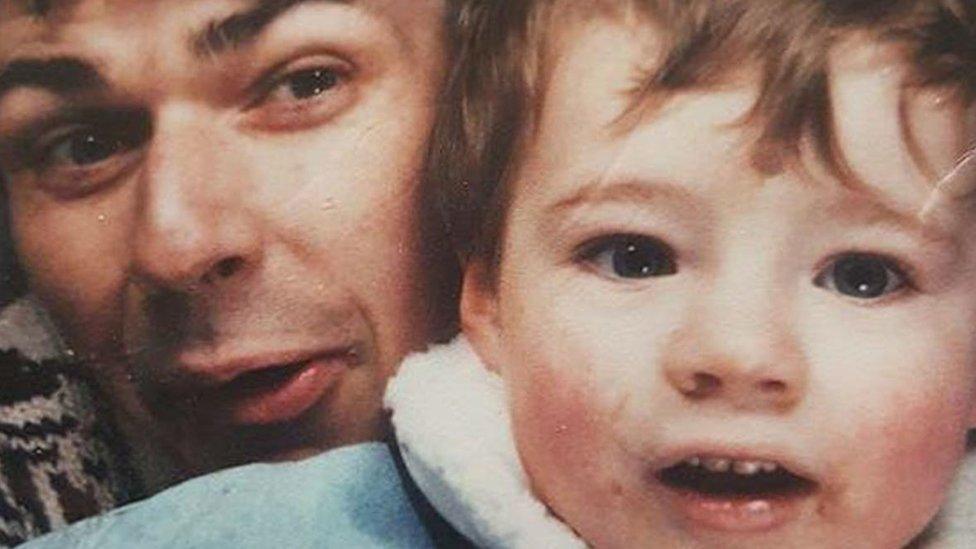
- Published3 February 2023

